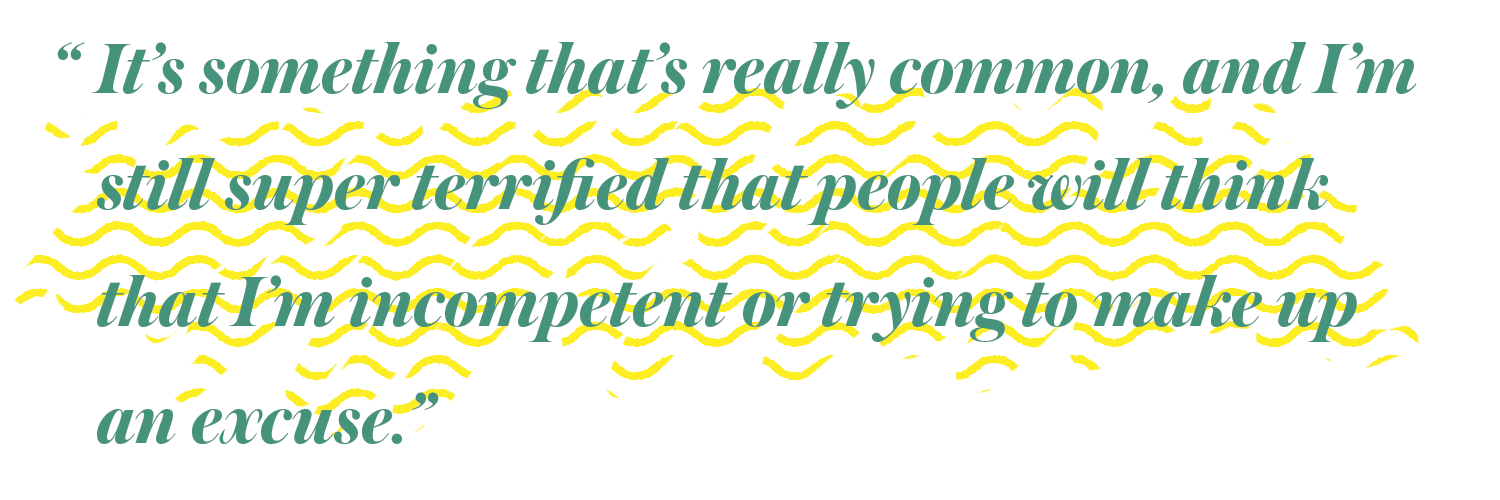A couple years ago, my girlfriend and I were doing our weekly shopping. “We should get a loaf of bread,” she said. It wasn’t on our list. I was having a stressful time at work and out of nowhere the thought of buying bread filled me with abject anxiety and terror. I wanted to run away and disappear at the same time. It was just a loaf of bread.
I don’t think mental illness was ever that real to me. Despite having friends and family members openly suffering. Despite the number of people in my wider circle who ended their lives. Despite the constant reminders, statistics, and campaigns. Mental illness is difficult to understand until it happens to you. For me, it wasn’t real until that moment. And yet, I did nothing about it. Two years later, I realized I was no longer enjoying anything. I realized life was feeling gray and dull, and I honestly didn’t know what I was doing in it. It felt like my only options were suicide or just simply walking away. Walking away from my relationship of 10 years, from my career, from my life. But I didn’t know where I wanted to go.
Of course, all of these thoughts aren’t—and weren’t—rational. I know that. And I know that I have a pretty great life and a strong network of people who love and support me. Suicide is often described as a cowardly act. For me, when I consider it, it feels like I’m doing everyone a favor. It feels like the world would be better off without me.
And I know I’m not alone. I’ve seen the stats. But until I started talking to other people in the beer industry about their experiences, I didn’t realize how closely their stories mimicked mine. Brewery owners with anxiety, friendly brewery staff with broad smiles who are often too afraid to leave their house. There are times when I ask if they ever think about suicide and know the answer is “yes” from the look in their eyes.
John (some names have been changed in this story to protect our sources’ anonymity) is a successful citizen of the beer world. He owns a brewpub. It’s busy most days and packed out on weekends. His beer has won accolades and medals. He has a wife and a young son. He’s tall, good looking, and muscular. In the years I’ve known him, I would describe him as warm, friendly, and generous. He was also bullied as a child and never told anyone. He says he’s carried it with him all of his life, but thought it was in the past. Until one night his wife found him outside their family home. He was screaming, curled in a ball. He recalls being so upset he couldn’t move. “I had nothing in me,” he says. The following week, things got worse.
“The anxiety just took hold so much that I literally jumped out of a moving car and ran to the edge of a bridge,” he remembers. “The second I looked down and realized what I was trying to do, I dropped everything and ran down a path, barefoot, for about a kilometer. By that point, police became aware, they found me, then sat me down, and called an ambulance.”
That was earlier this year. He realizes now that he’s always carried around a lot of anxiety, and it stems back to the childhood bullying. Despite outward success at the time, he calls it the “darkest place” in which he’s ever been.
Craig Basford, from Big Shed Brewing Concern, in Adelaide, remembers the first time he realized he was having an anxiety attack: “It was the worst sensation. I wanted to run and keep running. I wanted to get away from it.”
It was triggered by two everyday occurrences for a small brewery owner: a stuck mash, and an industry peer stopping in to say hi. What he thought was a one-off attack soon became a regular event. Workplace challenges, part and parcel of opening a brewery, made things feel like “the end of the world, all of the time.”
“You feel like you’re putting your families on the line, and your livelihoods on the line to do this thing,” Basford says. “And when it feels like it’s not working, [you think] you’ve made the biggest mistake of your life.”
From the outside, the beer industry can seem like a great lifestyle choice. No more 9-5 workdays, and lots of events filled with beer and friends. However, that often means days or weeks away from home. For Basford, those times can be challenging.
“Of course, we don’t help ourselves and we curate a social media presence which shows us having a good time because that’s part of the schtick,” he admits. “It’s fun on the first night, it’s ok on the second night, but it gets really tiring really quickly.”
It was one such week that caused Exit Brewing’s Fraser Rettie to realize he maybe needed help. Seeing breweries celebrating success and seeming to do it with relative ease turned his self-doubt into self-loathing.
“You see breweries that are bigger than you and getting so much more traction than you are, which probably makes me feel that I’m not doing as well as I could be,” he says.
He was feeling like he was letting his co-founder down, and the stress and time spent on the business impacted not only his mindset, but his personal relationships. Things snowballed from there.
“I rarely see friends now that aren’t in the beer industry, but I don’t have time to dwell on it because I simply don’t have time,” Rettie says. “When I do take a step back, I get quite sad and annoyed and angry at myself.”
It’s not only brewery owners who are impacted by mental health, either. Mike is currently involved in a workplace dispute with his old employer. Working for a small brewery often meant shared responsibility, and when staff left, they weren’t being replaced. Mike thought it would be a short-term thing, but after a few years he began to realize nothing was changing. In fact, he was carrying more and more burden. The workplace became increasingly toxic, and he became detached from work and family. Since leaving the brewery, he finds that his old co-workers, people he once considered friends, don’t see his mental illness as a real thing.
“I took that as a big kick in the guts,” he says. “I’m still trying to cope with that. These are good friendships, I thought, but the fact that they didn’t see it as being real… I still struggle with it.”
Jessie came into the beer industry with a history of anxiety and depression. She always wears a smile, greets with a hug, and takes time to talk and listen. Not knowing her history, I was surprised when she reached out for this story. She says she was attracted to the industry because of the open and welcoming community. While working part-time, doing events and promotions, she gained industry qualifications. But as a woman in the industry, she finds it hard to get respect when she’s pouring and presenting beer. She tries to remain resilient and doesn’t want to be perceived as weak. Lately, things have gotten bad.
“I’ve had a few breakdowns recently because I just feel worthless,” she says. “I feel like nothing I do is good enough. Sometimes I have these moments where I think everyone’s fake and no one really likes me, and it’s hard. I love this. I love what I do, no matter what, and I’m thankful I have that determination, but it sucks sometimes.”
Non-profit organization, beyondblue, works with—and provides support for—those with depression, anxiety disorders, and related mental disorders. Nick Arvanitis, head of workplace research and development, says it’s often a series of small changes in behavior and mood that can indicate you, or someone around you, has a mental health issue. These changes can include disrupted sleep patterns, losing enjoyment in previously fun activities, and being increasingly anxious about small day-to-day problems. People may not always see the changes in themselves.
“That’s where it’s really important to have a good support network,” Arvanitis says. “That might be family, friends, or other small business owners. Even having conversations with them to say, ‘Look, if you do see these signs within me, let me know.’”
The Black Dog Institute is another great organization. A “translational research institute,” its goals are to reduce incidence and stigma around mental illness. Consultant psychiatrist Dr. Caryl Barnes agrees with Arvanitis, saying people should be aware of themselves and those around them. Early identification is important in order to not let things develop into a more complicated issue. And perhaps most important of all, if you aren’t sure, talk to your doctor.
“The big marker is change, whether it’s your behaviour or your physical state, and also your mental state in terms of your self talk,” Barnes says. “It can be very insidious, becoming more critical of yourself.”
Both Barnes and Arvanitis encourage healthy habits.
“We know that physical health is closely related to mental health, so a lot of the things that people do to look after their physical health contributes to their mental health,” Arvanitis says.
He adds even small things, like making sure to take breaks throughout your work day, and switching off emails and social media in the evening, will make a big difference to keeping a healthy mind for brewers, staff, and small business owners.
“Then thinking about how they can unwind at the end of the day,” he continues. “It could be mindfulness, or using relaxation apps and then thinking about what they’re doing outside work. And that’s things like catching up with friends and family members, having hobbies that enable them to disconnect from work and enjoy a satisfying activity.”
As for owners, they also need to be aware of their team. Barnes says that having good relationships will make things easier if there is ever concern about an employee's mental health. She explains it can make it easier to tackle, but warns to be wary of how you approach the subject. Identifying specific behaviours that are of concern without implying there are mental health issues is the way to go.
“The first thing, really, is to clock what it is that you are worried about,” she says. “Whether it’s a change in behavior, or a particular issue that you’ve seen, [you need to then] arrange for a time to have a conversation with that person.”
She says it’s about opening the door for them to talk. However, also be prepared to act because “you might be the first person they’ve ever told,” and that may be a lot to handle.
Preparedness is something Arvanitis also emphasizes for small brewery owners. Especially when so much is at stake.
“What plan do you have in place in terms of a financial safety net?” he asks. “Do you have other capable people in the business or a family member who can take over your role if you’re struggling?”
After spending the night in a hospital, John saw a doctor and a therapist. He chose to start taking antidepressants and spent some time outside the brewery. He says he’s come to accept “that it’s ok to be anxious, and it’s ok that you can be unwell.”
“It’s important that people know there’s a lot of difficult times out there for people and you should know you’re not alone,” he says. “It’s silly because we are happy to talk about cancer, or HIV, but we can’t talk about mental health.”
And it’s that attitude that Basford takes. He likens the support he gets from his friends to someone helping him with physical injury. He says if he breaks his leg and needs help climbing stairs, he knows he can count on his friends and he hopes others feel the same.
“If they reach out and want to have a chat, fuckin’ make time to do that,” he advises. “That could be the difference between a great outcome and a bloody tragic one.”
For him, he’s found pleasure in one simple aspect of his job: getting behind the bar on a Friday night and sharing a chat with customers. “When you pull beers on a Friday people are actually thankful,” he says, trailing off. “We do make a difference, no matter how small in the greater scheme of things. We do make a difference in people’s lives.”
Mark learned something similar when he found support from some local homebrewers. Hanging out, in a shed, making beer and cooking pizza—it was a far cry from his earlier days brewing at some of Australia’s most renowned breweries, but he says it “went a long way” to getting him back to brewing. Which is something he does professionally again.
“That’s the essence of the industry right there. Kicking back, making beer, and enjoying it,” he says.
Since seeing a psychologist, he’s also been learning and adopting tools for dealing with stress as well as narrow-minded attitudes. He recalls the advice his psychologist gave him: “It’s their fuckin’ problem, mate.”
Unfortunately, it hasn’t all been positive. While Mark chose to remain anonymous for legal reasons, both John and Jessie were concerned about perception. John was initially okay with being identified, but after giving it some thought, he requested anonymity. While he is fine with people knowing, he was concerned what it might do to his brewery’s brand. He doesn’t want it to turn into something that could hurt those that work for him. Meanwhile, Jessie is actively looking for jobs in the industry.
“I am scared about what people will think about me,” she says. “And that sucks. It sucks so much. It’s something that’s really common, and I’m still super terrified that people will think that I’m incompetent or trying to make up an excuse."
When approaching a story on mental health in the beer industry, I expected to hear a lot more about alcohol abuse. I anticipated, perhaps ignorantly, that it would be a recurring thread. But it was only mentioned by a couple of interviewees, and only as an afterthought rather than a contributing factor. While the issue of alcohol abuse in the beer industry has been highlighted before, the recurring theme of mental illness is that anyone is susceptible. Alcohol abuse is an entirely different—but no less serious—issue.
Maybe it’s the pressure of being a woman in a male-dominated industry, or the stress of running a business, managing staff, or taking on large workloads in a small business that contributed to these stories, but they weren’t the actual stories. The stories were the people themselves.
Basford at Big Shed describes himself as always being a bit of a “sensitive soul,” while Rettie believes his previous career helped keep his mind healthy. He says the ability to take frequent European holidays while earning a good income in the IT industry was a big positive in his life pre-beer.
“That would give me something to look forward to all the time,” he says. “And I think, if I look at myself, in some ways this is probably part of my makeup for years.”
John is now aware he had unresolved issues from his childhood, and Jessie has battled with anxiety her whole life. The beer industry isn’t special in that sense, and these stories further prove that mental illness can affect anyone for a number of reasons. And chances are, it’s affecting someone you know.
Roughly one in five Australians suffer a mental illness of some description. In the last five years, the average number of suicides in Australia has topped 2,600. In the U.S., mental illness stats are just under one in five. More than 44,000 people end their lives each year, and for every one that attempts it, 25 more consider it.
Talk to your health professional or try one of these support networks:
Lifeline: 13 11 14 www.lifeline.org.au
beyondblue: 1300 22 4636 www.beyondblue.org.au
SANE Australia helpline: 1800 18 SANE (7263) or www.sane.org
Black Dog Institute: https://www.blackdoginstitute.org.au/
Talk to your health professional or try one of these support networks:
Suicide Prevention Services: https://edubirdie.com/blog/student-suicide-prevention-guide
You Can NOT Be Replaced: http://www.youcannotbereplaced.com/
American Foundation for Suicide Prevention: https://afsp.org/
National Suicide Prevention Lifeline: 1-800-273-8255














